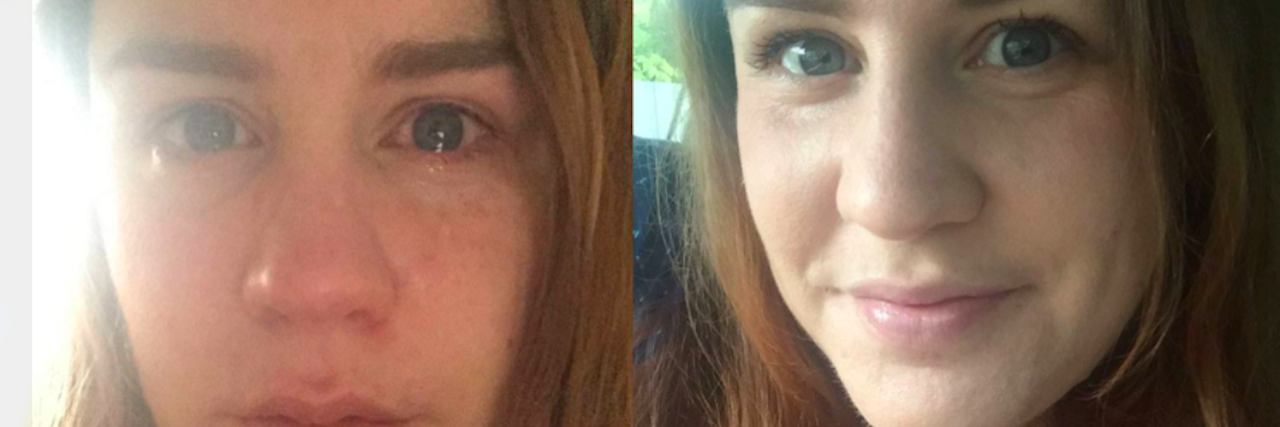In response to an article published by The Sydney Morning Herald about how employers can identify people who are “faking” mental illness to get out of work, writer Anna Spargo-Ryan posted two selfies to show how easy it is tell when someone’s faking it.
Her message: The concept is bogus.
“These photos of me were taken three days apart,” she wrote in a Facebook post (below). “In the first one, I have a mental illness. And in the second one, I have a mental illness.”
In one of the photos, Spargo-Ryan is visibly upset. In the other, she looks “put together.” She said an article about “faking” mental illness is problematic because it perpetuates the belief that people with mental illness just “aren’t trying hard enough.” The real issue in the workplace are people with mental illness who are faking being well, not the other way around.
“Both of these photos are mental illness,” she said. “I hope this helps you to spot the fakers.”
Read her post in its entirety below:
These photos of me were taken three days apart.
In the first one, I have a mental illness.
And in the second one, I have a mental illness.The Sydney Morning Herald today published an article by James Adonis, about how employers can identify people who are “faking” mental illness to get out of work.
One of the recommendations from this absolute dropkick of a human was to “issue a warning to those you suspect are faking it.”
Part of what makes mental illness so hard to identify in at-risk people is the constant reinforcement that we’re “imagining it” or that we’re “just sad” or that we “have to want to get better”. It’s an ethereal illness, existing only because we can’t be bothered to be well, or because we’ve talked ourselves into it, or because we didn’t try hard enough, or because we are faking it.
Garbage “people-management thinkers” who choose to perpetuate the myth that mental illness is probably a fakery do so to broad societal detriment. Good people have mental illnesses. We need them to feel supported and empowered in their places, whether that’s work or home or school or somewhere else. Not that someone is waiting to “catch them out”. Not that their illness is not legitimate. Not that the time they take away from work to seek treatment is bogus.
Both of these photos are mental illness. I hope this helps you to spot the fakers.

